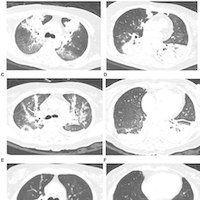What Happens If Health-Care Workers Stop Showing Up?
theatlantic.comThe United States needs its health-care workers to see it through this crisis. But there are no replacements on the shelf. They can’t be built, trained, or repurposed from other jobs. Unless the country does dramatically more to provide them with the equipment they need to do their job safely, to assure them they will be cared for if they fall ill, and to provide their family with a measure of security, it risks losing them.
The morning before my shift, I try to stay busy with emails, writing, cleaning the house, anything really. If I sit and think about it too long, undisturbed, I get nervous.
I’m afraid to go to work, and yet I’m told I must. The flitting anxiety swells as I pull on my scrubs and head to the car. The streets are empty.
I drive alone into the epicenter. It peaks when I first step through the door into the jumble of patients in chairs, stretchers, and beds crowded around our cramped workstation, staff jammed together discussing care, writing notes, calling reports.
Then I start, surrounded by my colleagues, and am too busy to think about it.
The fear is as much for my family and friends as for me. Probably more.
I’m a physician who works in an emergency department in Washington, D.C., and the coronavirus is spreading.














